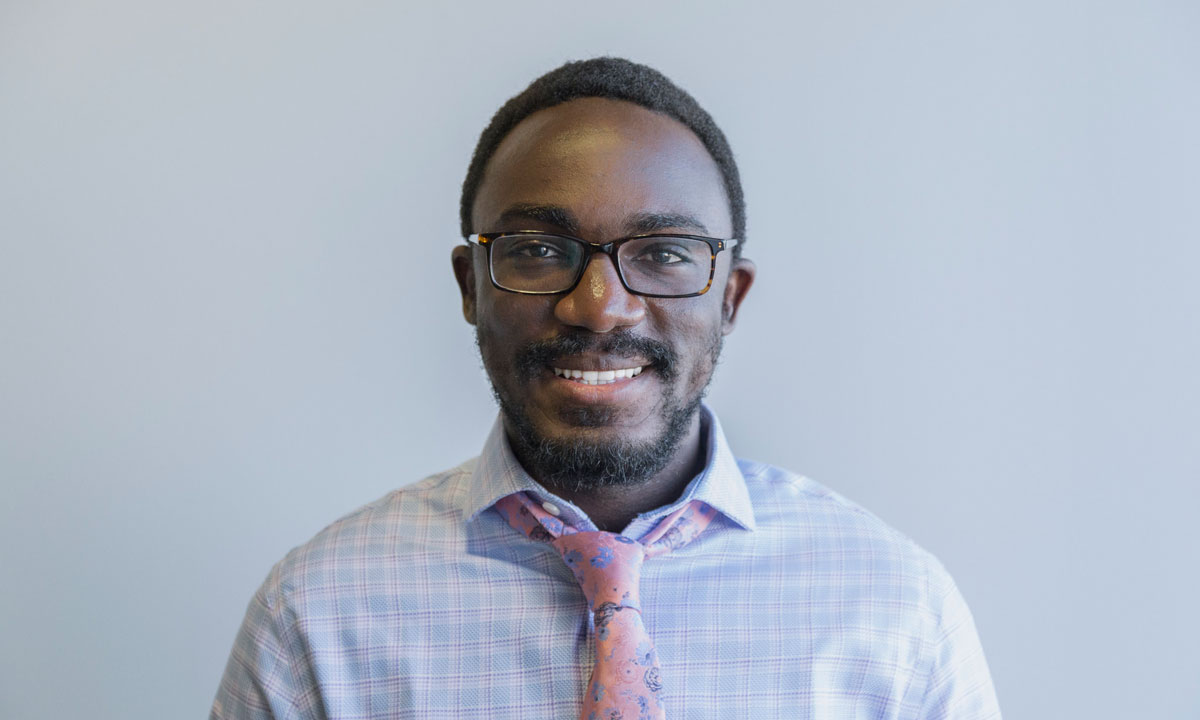Franck Kamga Gninzeko (B.S.’17), a Virginia Commonwealth University biomedical engineering doctoral student, has received a prestigious dissertation award from the National Institutes of Health.
Kamga Gninzeko researches the influence of aging in lung injury in the lab of Rebecca Heise, Ph.D., associate professor in the Department of Biomedical Engineering. Beginning in February, the NIH R36 grant of $96,802 will provide two years of support for his project, “Senolytic Drugs as Therapy in an Aging Model of Ventilator-Induced Lung Injury.”
Heise called him an “integral member” of her lab, where he has been working since he was an undergraduate biomedical engineering major. “This R36 award will allow him to manage his own research project and gain valuable experience for his eventual progression toward being a successful independent investigator," she said.
“Franck is an outstanding student doing highly impactful research in an innovative lab environment,” said Henry J. Donahue, Ph.D., the Alice T. and William H. Goodwin, Jr. Endowed Chair and Professor and department chair.
Mechanical ventilation is necessary for patients with acute respiratory distress syndrome, but it can aggravate the injury, known as Ventilator-Induced Lung Injury (VILI). In turn, this condition often leads to sepsis and multisystem organ failure.
Senolytic drugs selectively eliminate non-functioning senescent, or so-called “zombie cells,” which cause aspects of aging.
When a patient is on a mechanical ventilator, “my hypothesis is that the hostile environment caused by VILI exacerbates or precipitates the cells to grow older very quickly,” Kamga Gninzeko said. The first part of his project is to prove that such rapid aging is occurring inside the lungs when a patient is put on a mechanical ventilator. “The second part is to use those senolytic drugs to selectively target those senescent cells,” he said.
If this approach is successful, he said, “Before putting patients on mechanical ventilators, you can give them some senolytics to prevent the negative effects of VILI.”
Kamga Gninzeko, who transferred to VCU from J. Sargeant Reynolds Community College, said while his childhood dream was to become a doctor, he found that biomedical engineering was a better personal fit for him. “I can help in a different way.”
Currently the chair of the teaching assistant committee of the Biomedical Graduate Student Council, Kamga Gninzeko also volunteers through the college’s outreach efforts with middle and high school students. As an undergraduate student, he participated in the Dean’s Undergraduate Research Initiative program and now serves as a mentor.
He said he is currently planning to pursue a postdoctoral fellowship after earning his degree and hopes to someday own his own lab.
“For me, long-term research is not advancing quickly enough,” he said. “We need more people ... so that’s why I need to focus on that.”
